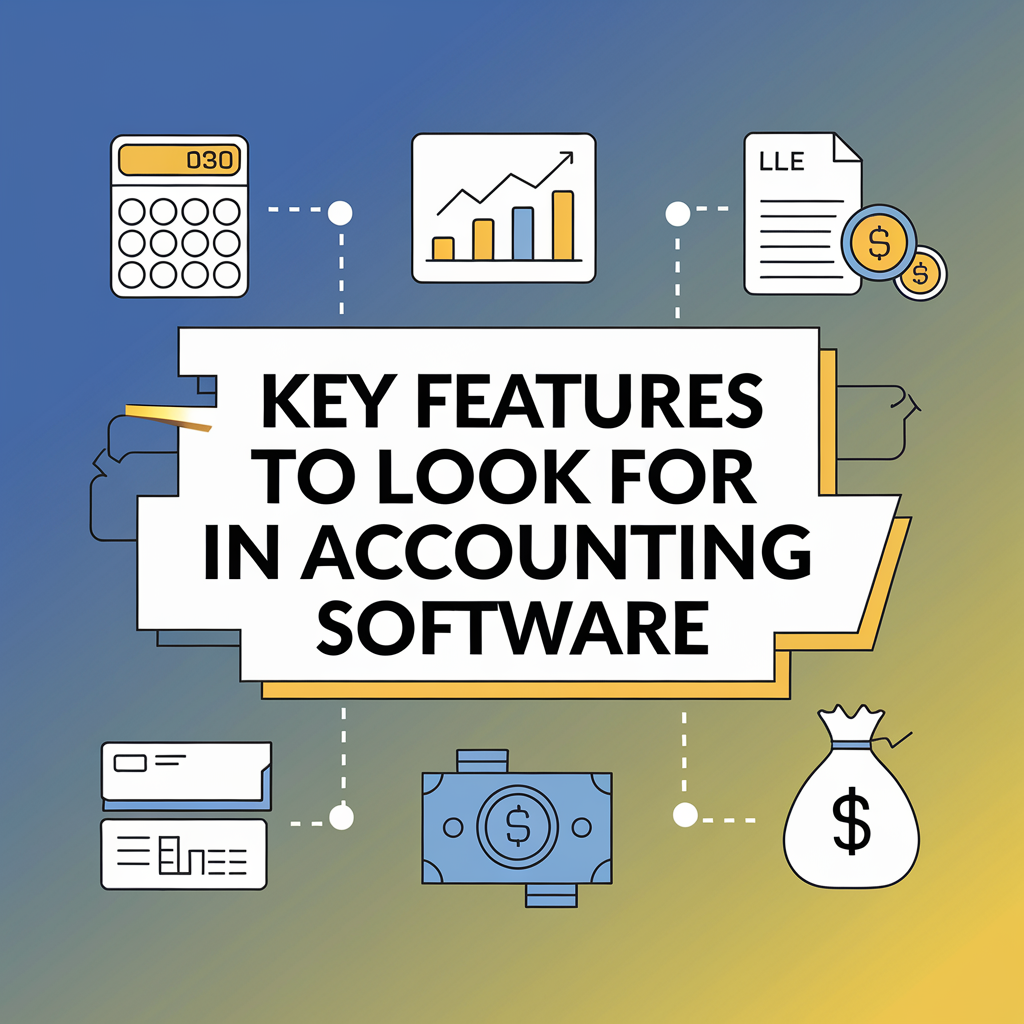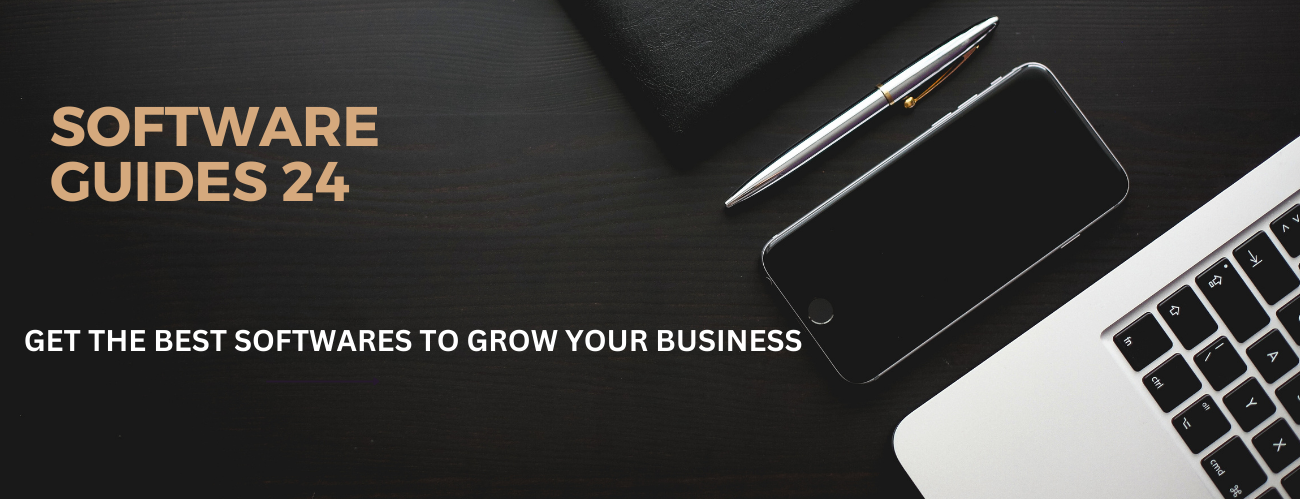Accounting Software: Features, Benefits,Top Options

Accounting software has become a cornerstone for modern business operations. Whether you run a small startup or a large corporation, having the right tools to manage your finances is non-negotiable. But what makes accounting software essential, and how do you choose the right one for your needs? This guide answers all your questions.
What is Accounting Software
Accounting software is a digital tool designed to help businesses manage their financial data efficiently. It automates tasks like bookkeeping, invoicing, and tax preparation, ensuring accuracy and saving time.
Core Functionalities of Accounting Software
- Invoicing and Billing: Create and send invoices seamlessly.
- Expense Tracking: Record and categorize expenses.
- Tax Compliance: Automate tax calculations and filings.
- Financial Reporting: Generate real-time financial statements.
- Payroll Management: Streamline employee payment processes.
Why Your Business Needs Accounting Software
Gone are the days of managing ledgers manually. Accounting software provides unparalleled efficiency and accuracy.
Streamlined Financial Management
Accounting software centralizes all financial data, enabling easier management of cash flow, accounts receivable, and payable.
Improved Accuracy and Compliance
Automation minimizes human errors, ensuring compliance with tax laws and financial regulations.
Time-Saving Benefits
Automating repetitive tasks gives business owners more time to focus on growth and innovation.
Key Features to Look for in Accounting Software

The right accounting software should have features tailored to your business needs.
Invoicing and Billing
Automate invoice generation, send payment reminders and track customer payments.
Expense Tracking
Log and categorize expenses, making it easier to monitor cash flow and control costs.
Tax Management
Automate tax calculations and generate tax-ready reports to simplify year-end filings.
Payroll Integration
Ensure accurate employee payments and deductions while complying with labor laws.
Reporting and Analytics
Gain insights into your business’s financial health through customizable dashboards and reports.
Types of Accounting Software
Not all accounting tools are the same. Here’s a breakdown of the main types:
Cloud-Based Accounting Software
Cloud solutions like QuickBooks Online and Xero offer flexibility, real-time updates, and remote access. They are ideal for businesses seeking scalability.
Desktop Accounting Software
Desktop solutions are traditional tools installed on a local system. While secure, they lack the flexibility of cloud-based options.
Industry-Specific Accounting Software
Tailored for industries like construction, retail, or healthcare, these tools provide customized features for niche needs.
Top Accounting Software
When choosing accounting software, it’s essential to consider the best tools available:
- QuickBooks: Known for its user-friendly interface and comprehensive features.
- FreshBooks: Ideal for freelancers and small businesses.
- Xero: Offers robust integrations and an intuitive interface.
- Zoho Books: A budget-friendly option with excellent features.
How to Choose the Right Accounting Software for Your Business
Selecting the right tool can be daunting, but a systematic approach helps:
- Assess Your Needs: Identify your business size and required features.
- Compare Pricing: Analyze subscription plans and hidden costs.
- Check Scalability: Ensure the software grows with your business.
- Evaluate Support: Look for responsive customer service and training resources.
The Cost of Accounting Software
Pricing varies widely, from free options to premium tools with advanced features.
- Subscription-Based Costs: Monthly or annual fees, typically ranging from $10 to $70/month.
- One-Time Purchases: Often higher upfront but cost-effective long-term.
- Free Tools: Basic features for startups and small businesses.
Benefits of Using Accounting Software
The advantages are undeniable:
- Enhanced Productivity: Automates time-consuming tasks.
- Data Insights: Provides actionable insights for better decision-making.
- Simplified Taxes: Reduces the stress of tax season with automated filings.
Challenges in Using Accounting Software
Despite its benefits, there are challenges:
- Learning Curve: Training may be needed for effective use.
- Data Security: Protecting sensitive financial data is critical.
- Integration Issues: Compatibility with existing tools can be problematic.
Future Trends in Accounting Software
The industry is evolving rapidly:
- AI and Automation: Predictive analytics and smarter automation.
- Blockchain: Secure and transparent financial transactions.
- Mobile Apps: Access your finances on the go.
Tips for Successfully Implementing Accounting Software
Ensure a smooth transition:
- Train Your Team: Educate employees on the software.
- Integrate Tools: Sync the software with existing systems.
- Regular Updates: Keep the software up to date.
Common Myths About Accounting Software
Don’t let misconceptions hold you back:
- “Only big businesses need it”: Small businesses benefit immensely too.
- “It’s too expensive for startups”: Free and affordable options exist.
- “Manual methods are more reliable”: Automation minimizes errors.
Conclusion
Accounting software is a game-changer for businesses, offering efficiency, accuracy, and peace of mind. Choosing the right solution depends on your unique needs, but the benefits far outweigh the costs.
FAQs
- What is the best accounting software for small businesses?
QuickBooks and FreshBooks are excellent choices for small businesses due to their affordability and ease of use. - Can accounting software replace an accountant?
While it simplifies tasks, an accountant’s expertise is still invaluable for strategic financial planning. - How secure is cloud-based accounting software?
Most cloud-based solutions use advanced encryption to protect sensitive data. - Is free accounting software reliable?
Yes, but it may lack the advanced features needed for growing businesses. - How often should I upgrade my accounting software?
Regularly update to access new features and security enhancements.



